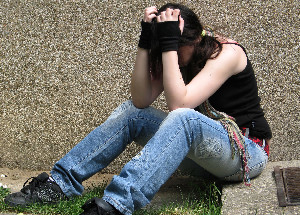Special to CSMS Magazine
Teenage delinquency is at its all-time high, more and more teenagers are forming the fool and committing crimes for whatever reason. Whether it is from what is depicted on various television shows, or video games, teenagers are beginning to think that committing crime is the social norm. This is not the case at all. Teenage delinquency can and should be prevented and can be done by enforcing a few simple implementations. A child’s upbringing can have a great impact on what type of adolescent he/she grows up to be. Also by making sure teenagers are involved in some type of after school extra-curricular and having some type of role model other than their parents can have a positive, lasting effect on their lives.
To begin with, raising a child in the right way will leave an imprint on how that child chooses to conduct himself throughout his adolescence and adulthood. Values, ethics, and morals should all be instilled in a child at a very young age. This can teach a child the moral and ethical way to act. If there is no backbone or substance to instill these values, children will tend to follow what they see on television, social networks, which are all platforms that falsely glorify guns, sex, and drugs. But children with those preinstalled sets of judgments will be able to differentiate themselves from “delinquents” or wretched of society; all because of the mere fact that they have been taught and raised to act with high standards.
In addition, another significant guideline that can be used to ensure teenagers stay out of trouble and don’t commit crime is to make sure they participate in some type of extracurricular activity after school. This will allow them to focus their time on something that they love; this will keep them out of the streets/gangs. For example: Joining a sports team or the school band can enrich their lives and give them short term and long term goals to focus on, other than partaking in delinquent acts. Joining a sports team or band can promote self-esteem by allowing teenagers to aspire to become like their favorite NBA player or a top music artist instead of aspiring to be like the drug dealers, robbers, and gang members in their local neighborhoods.
Furthermore, having a mentor or role model that children can look up to can help them become better citizens of society. A role model can inspire them to make good choices and make them want to idolize him as they grow into adolescents. Sometimes children’s parents may not be enough to instill in them all the values and morals that they need. “Raising a child doesn’t just take the parents. It takes the whole village,” as they always say.
A good mentor should be able to relate to the child his good mentoring. He also should be able to teach a child the right paths to take while facing antisocial but tempting bad habits. This can be done by pointing out examples from his own life—wrong paths he almost fell into. Just by being that child’s best friend can help the teenager empathize and learn from his role model.
In conclusion, I believe with all that was stated above, deracinating teenage delinquency may be difficult, but not an impossible task to accomplish. A child’s upbringing can instill all the values and morals that are needed before he/she is influenced by society. Extracurricular activities can take kids off the streets and surround them with a positive environment. Lastly, having a mentor to whom they can look up to can change children’s lives for the better. It will certainly eliminate teenage delinquency.
Note: Margaret Cho is a psychology major at the University of North Florida. She is the newest contributor to CSMS Magazine.



google…
G http://images.google.com.hk/…
manfaat madu untuk wajah…
Di dunia ini banyak sekali kemanfaatan yang tidak diketahui oleh masyarakat, terima kasih sudah memberi kami pengetahuan tambahan di artikel ini….